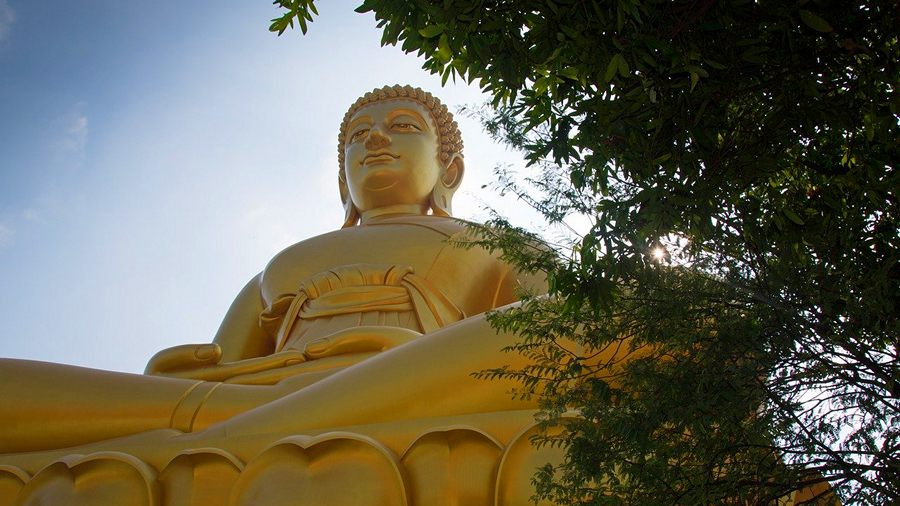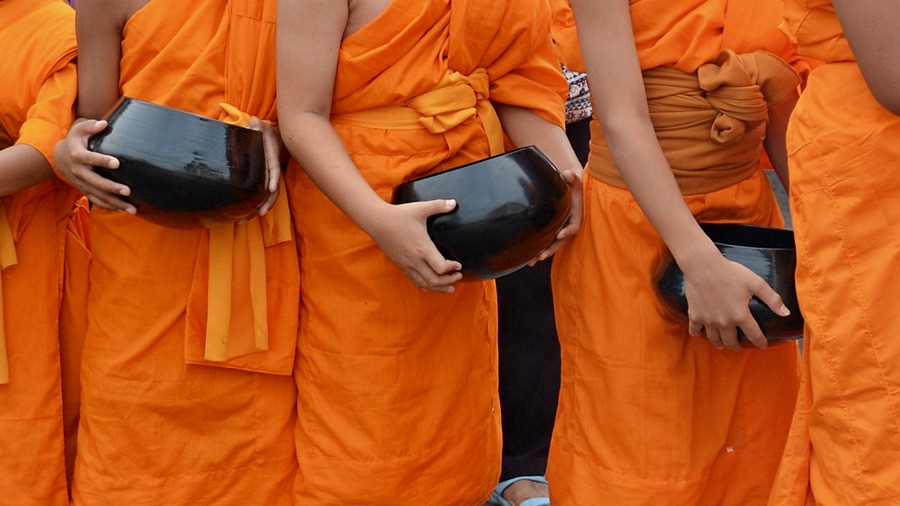This was said by the Lord, said by the Arahant, so I heard:
“Bhikkhus, even though a bhikkhu might hold on to the hem of my robe and follow close behind me step by step, if he is covetous for objects of desire, strongly passionate, malevolent, corrupt in thought, unmindful, uncomprehending, unconcentrated, of wandering mind and uncontrolled faculties, he is far from me and I am far from him. What is the reason? That bhikkhu does not see Dhamma. Not seeing Dhamma, he does not see me.
“Bhikkhus, even though a bhikkhu might live a hundred leagues away, if he is not covetous for objects of desire, not strongly passionate, not malevolent, uncorrupt in thought, with mindfulness established, clearly comprehending, concentrated, of unified mind and controlled faculties, he is close to me and I am close to him. What is the reason? That bhikkhu sees Dhamma. Seeing Dhamma, he sees me.”
This is the meaning of what the Lord said. So in regard to this it was said:
Though closely following behind,
Full of longings and resentment,
See how far away he is—
The desirous one from the desireless,
One unquenched from the quenched,
A greedy one from the one without greed.But a wise person who by direct knowledge
Has fully understood the Dhamma,
Becomes desireless and tranquil
Like a calm unruffled lake.See how close he is to him—
A desireless one to the desireless,
One quenched to the quenched,
The greedless one to the one without greed.
This too is the meaning of what was said by the Lord, so I heard.
Read this translation of Itivuttaka 92 Saṅghāṭikaṇṇasutta: The Hem of the Robe by John D. Ireland on SuttaCentral.net. Or read a different translation on SuttaCentral.net, SuttaFriends.org or DhammaTalks.org. Or listen on SC-Voice.net. Or explore the Pali on DigitalPaliReader.online.
Or read a translation in Deutsch, Català, Čeština, Français, Italiano, မြန်မာဘာသာ, Nederlands, Norsk, Português, ру́сский язы́к, සිංහල, or Srpski. Learn how to find your language.







